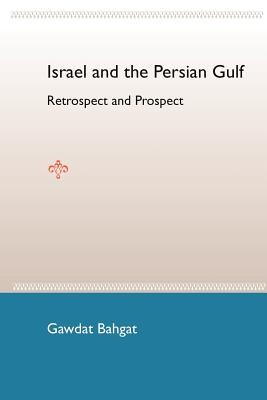
- We will send in 10–14 business days.
- Author: Gawdat G Bahgat
- Publisher: University Press of Florida
- ISBN-10: 0813030730
- ISBN-13: 9780813030739
- Format: 15.2 x 22.9 x 1.2 cm, minkšti viršeliai
- Language: English
- SAVE -10% with code: EXTRA
Reviews
Description
"Up-to-date and engaging . . . a welcome addition to the scholarly literature on the Persian Gulf's foreign and security challenges in the twenty-first century."--Nader Entessar, Spring Hill College
Despite the volume of literature on the Persian Gulf and the Arab-Israeli conflict, few analysts have sought to establish the connection between the Gulf and the Levant. Bahgat argues that peace between the Arabs and the Israelis and stability in the Persian Gulf are intertwined, and as developments in one region are echoed in the other a detente between the Persian Gulf states and Israel is essential to reach a lasting, comprehensive peace in the greater Middle East.
Bahgat examines major economic, political, and strategic interactions among Tehran, Baghdad, and Riyadh on one side and Tel Aviv on the other to provide tentative assessments of the incipient changes in regional relations in the aftermath of Saddam and Arafat. The assessments include the prospects for relations between post-Saddam Iraq and Tel Aviv and the response of Tehran, Riyadh, and the other Arab states to the changing dynamics of the regional order. The likelihood of an emergent rapprochement between the Persian Gulf states and Israel and the prospects for progress in the Arab-Israeli peace process are also evaluated.
Interweaving systems theory, realism, geopolitics, decision-making theory, ideology, and ethnic relations, Bahgat's account of developments between Israel and each of the Gulf states and the nuances of Israel's Persian Gulf policy provides a long-needed bridge connecting the two Middle Eastern subsystems.
Gawdat Bahgat is director of the Center for Middle Eastern Studies at Indiana University of Pennsylvania.
EXTRA 10 % discount with code: EXTRA
The promotion ends in 22d.12:26:41
The discount code is valid when purchasing from 10 €. Discounts do not stack.
- Author: Gawdat G Bahgat
- Publisher: University Press of Florida
- ISBN-10: 0813030730
- ISBN-13: 9780813030739
- Format: 15.2 x 22.9 x 1.2 cm, minkšti viršeliai
- Language: English English
"Up-to-date and engaging . . . a welcome addition to the scholarly literature on the Persian Gulf's foreign and security challenges in the twenty-first century."--Nader Entessar, Spring Hill College
Despite the volume of literature on the Persian Gulf and the Arab-Israeli conflict, few analysts have sought to establish the connection between the Gulf and the Levant. Bahgat argues that peace between the Arabs and the Israelis and stability in the Persian Gulf are intertwined, and as developments in one region are echoed in the other a detente between the Persian Gulf states and Israel is essential to reach a lasting, comprehensive peace in the greater Middle East.
Bahgat examines major economic, political, and strategic interactions among Tehran, Baghdad, and Riyadh on one side and Tel Aviv on the other to provide tentative assessments of the incipient changes in regional relations in the aftermath of Saddam and Arafat. The assessments include the prospects for relations between post-Saddam Iraq and Tel Aviv and the response of Tehran, Riyadh, and the other Arab states to the changing dynamics of the regional order. The likelihood of an emergent rapprochement between the Persian Gulf states and Israel and the prospects for progress in the Arab-Israeli peace process are also evaluated.
Interweaving systems theory, realism, geopolitics, decision-making theory, ideology, and ethnic relations, Bahgat's account of developments between Israel and each of the Gulf states and the nuances of Israel's Persian Gulf policy provides a long-needed bridge connecting the two Middle Eastern subsystems.
Gawdat Bahgat is director of the Center for Middle Eastern Studies at Indiana University of Pennsylvania.


Reviews